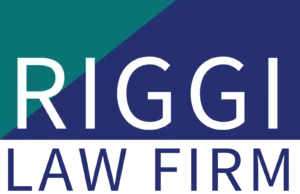What You Should Do When Your Paycheck is On The Line
Feeling like your paycheck takes a detour every time it leaves your employer? Does a big chunk disappear before you even see it? You’re not alone. Wage garnishment can feel like a financial prison, draining your income and leaving you struggling to make ends meet. But you don’t have to be stuck!
But there’s hope. You have options. And a Vegas bankruptcy attorney is one that can help you stop garnishment.
Quick Summary:
Understanding Garnishment in Nevada
Wage garnishment can feel like a financial sinkhole, draining your paycheck before you even see it. In Nevada, creditors can take up to 25% of your disposable income, leaving you struggling to make ends meet. Don’t despair! You have options to stop or reduce this bite out of your paycheck.
Nevada Garnishment Laws
Wage garnishment can feel like a confusing maze, especially when grappling with legal jargon. Here’s a simplified breakdown of Nevada’s garnishment laws:
The Squeeze Factor:
- 25% Maximum: Creditors can generally take up to 25% of your disposable income (what’s left after mandatory deductions). But don’t worry, that doesn’t always apply (NV Rev Stat § 31.295).
- Lower Garnishment for Lower Wages: If you earn less than $770 per week, the bite gets smaller. Your creditor can only take 18% in this case.
What Counts as “Earnings”:
- From salary and overtime to bonuses and vacation pay, anything your employer pays you counts as “earnings” for garnishment purposes.
Before the Garnishment Clamps Down:
- Certain deductions come off your earnings before the garnishment takes effect. This includes social security, medicare, and taxes. Life insurance payments and other voluntary deductions stay untouched (NV Rev Stat § 31.296).
Safe Zones: Not Everything Gets Clamped:
- Nevada shields some income from garnishment, like public assistance, unemployment benefits, and workers’ compensation. If garnishment would cause extreme hardship, exemptions might apply too.
Heads Up!: Your Rights Under the Law:
- Creditors must inform you of the impending garnishment and your right to claim exemptions. Don’t go it alone – seek help to understand your options.
- Garnishment orders have an expiration date. In Nevada, they only last 90 days. After that, creditors need a new order to keep taking your money.
What Are My Options To Get Stop Garnishment?
Negotiate with Your Creditors
While the creditor has legal muscle, negotiating a way out of garnishment is still an option worth exploring.
Why Negotiate?
Sure, they have the legal right to take your money. But they also want to get paid quickly, and sometimes a lump sum or a structured payment plan can be more appealing than a slow trickle through garnishment.
Making Your Case:
- Offer a better deal: Instead of a drawn-out garnishment, propose a lump sum payout or a realistic payment plan that gets them their money faster.
- Time matters: The quicker you can pay them off, the more open they might be to negotiation. Be ready to commit to a specific timeline.
- Knowledge is power: Do your research. Understand the debt amount, interest rates, and your legal rights. This puts you in a stronger bargaining position.
File for Exemption
Imagine you’re standing in court, pleading your case to the judge. By filing a claim for exemption, you’re essentially telling the court, “Wait, not all of my wages are fair game! Some of it deserves protection.” To convince the judge, you need strong evidence (your paperwork armor) to support your claim under state and federal laws.
What Can You Shield?
Nevada offers a variety of exemption options, like:
- Public Assistance: Funds like Social Security, unemployment benefits, and workers’ compensation are generally safe from garnishment.
- Minimum Income Protection: If your paycheck falls below a certain threshold, a portion of it may be exempt.
- Dependence Exemption: Do you support minor children or disabled dependents? A part of your income might be shielded to ensure their well-being.
Gathering Your Proof:
Think of your evidence as ammunition for your exemption claim. Evidence includes:
- Bank statements,
- tax returns,
- receipts, and
- any documents supporting your dependents’ needs can strengthen your case.
Object to the Garnishment
Once the official garnishment paperwork arrives (garnishment order and wage garnishment notice), take a close look. If any of these situations apply, you might have a strong case for objection:
- Wrong Moves: Did the debt collector miss a step or skip a proper notification? If they didn’t follow the legal procedures correctly, you can challenge the entire process.
- Money Grab Gone Wild: Is the garnishment amount exceeding the legal limit? Remember that in Nevada, that’s generally 25% of your disposable income, or 30 times the federal minimum wage (whichever is less). If you earn less than $770 per week, the limit shrinks to 18%. If the creditor’s taking more than they should, raise your voice!
- Cleared the Tracks: Did you pay off the debt already, but somehow it ended up in garnishment? Or maybe you couldn’t appear in court for valid reasons, and now you’re facing the consequences. Explain your situation and let the judge know the debt is no longer an issue.
- Shady Judgment Calls: Was the original judgment against you obtained unfairly? Maybe you weren’t properly notified about the lawsuit, or there were errors in the legal process. If you suspect something fishy, you can challenge the judgment itself.
File for Bankruptcy
While wage garnishment can feel debilitating, filing for bankruptcy shouldn’t be your first line of defense. It’s a powerful tool with significant consequences, best saved for situations where other options prove insufficient.
However, bankruptcy should only be considered when:
- Garnishment leaves you struggling to meet basic needs: Can’t afford groceries, rent, or essential bills? Bankruptcy ensures you have enough to cover life’s necessities while figuring out a debt repayment plan.
- Other options haven’t yielded results: Tried objecting to the garnishment, claiming exemptions, or negotiating with creditors, but nothing works? Bankruptcy provides a broader solution if you’ve exhausted other avenues.
- Debt load feels overwhelming: Feeling buried under insurmountable debt and facing multiple garnishments? Bankruptcy offers a fresh start by discharging or restructuring a significant portion of your debts.
Declaring bankruptcy under Chapter 7 or Chapter 13 can offer relief. Both options have their pros and cons, and the best choice depends on your unique situation. Let’s break it down:
Chapter 7:
Consider if:
- Massive debts: If your debts are overwhelming and exceed your assets, Chapter 7 can wipe them clean in about 4-6 months.
- Limited assets: Own little property beyond exempt items like your car and home? Chapter 7 allows you to keep essential belongings while discharging unsecured debts.
- Struggling to make ends meet: Garnishment leaving you financially squeezed? Chapter 7 stops wage garnishment immediately, providing fast financial relief.
Pros:
- Debt elimination: Most unsecured debts, like credit cards and medical bills, disappear.
- Quick process: Discharge typically happens within months, offering swift debt relief.
- Wage garnishment stops: Garnishment orders are automatically halted as soon as you file.
Cons:
- Credit score hit: Chapter 7 stays on your credit report for 10 years, impacting your borrowing ability.
- Assets at risk: Certain non-exempt property might be liquidated to pay creditors.
- Income limitations apply: If your income exceeds specific thresholds, you might not qualify.
Chapter 13:
Consider if:
- Regular income: Have a steady income and want to keep valuable assets? Chapter 13 lets you repay a portion of your debt over 3-5 years while keeping your belongings.
- Catch up on arrears: Fallen behind on payments but want to save your home from foreclosure? Chapter 13 helps you restructure your debts and catch up on missed payments.
- Retain car or home: Chapter 13 protects your car and home from repossession while you work towards a repayment plan.
Pros:
- Keep your property: You get to retain most of your assets under a repayment plan.
- Reduce debt amount: You may negotiate to pay back a portion of your original debt.
- Rebuild credit: Making consistent payments under Chapter 13 can actually improve your credit score.
Cons:
- Longer process: Takes 3-5 years to complete the repayment plan.
- Strict adherence: Missing payments can lead to dismissal of your case and potential garnishment resumption.
- Debt not fully eliminated: You’ll still owe a portion of your original debt under the repayment plan.
Why Do I Need a Las Vegas Bankruptcy Attorney?
Facing wage garnishment in Nevada? Going it alone might seem tempting, but it’s like trying a tightrope walk without a net. One misstep can cost you dearly.
An attorney is your safety line:
- Navigate the legal maze: They know the ins and outs of Nevada garnishment laws, protecting you from costly mistakes.
- Unleash your options: From objections to exemptions, they’ll guide you towards the best path to reclaim your paycheck.
- Level the playing field: They stand shoulder-to-shoulder with creditors, fighting for your rights and negotiating fair deals.
- Build a rock-solid case: They gather evidence, draft paperwork, and represent you in court, maximizing your chances of success.
- Free your mind: They handle the legal battle, letting you focus on rebuilding your financial future.
Trying to go solo? Here’s what awaits:
- Missed deadlines, bungled paperwork, and unfavorable agreements – all leading to even bigger financial headaches.
- Emotional drain and stress overload, stealing your energy and focus.
Don’t risk your future. Invest in a skilled garnishment attorney and regain control of your finances. Remember, facing this alone is a gamble you can’t afford to take.
Stop Garnishment with our Las Vegas Attorney Now!
Wage garnishment can feel like a tidal wave, threatening to drown your financial stability. You’re facing complex legal procedures, confusing exemptions, and aggressive creditors who want their pound of flesh. In this storm, you need more than a life raft – you need an anchor.
That’s where Riggi Law Firm comes in. We understand the unique challenges Nevadans face with wage garnishment, and we’re equipped to navigate the choppy waters with you.
Here’s why you can trust Riggi Law Firm to be your legal lighthouse:
- Proven Experience: David Riggi, our founding attorney, is has all the relevant experience: a former bankruptcy law clerk for a federal judge, a U.S. Attorney, and one of the top 2% attorneys nationwide. With over 10 years of experience, David has seen it all and knows how to win your case.
- A Clear Path Through the Maze: Nevada’s garnishment laws are intricate, with hidden loopholes and potential pitfalls. We’ll guide you through the legal labyrinth, ensuring you understand your options and avoid costly missteps.
- Unwavering Advocacy: We don’t back down from a fight. We’ll stand shoulder-to-shoulder with you, protecting your rights and negotiating the best possible outcome with creditors.
- Compassionate Guidance: This is about more than just law – it’s about your future. We understand the emotional toll of garnishment, and we’ll provide empathetic support and clear communication every step of the way.
Don’t let garnishment define your future. Take control and fight back with Riggi Law Firm as your champion.
Ready to reclaim your financial stability? Contact us today for a free consultation. We’re here to help you navigate the storm and reach calmer waters.















